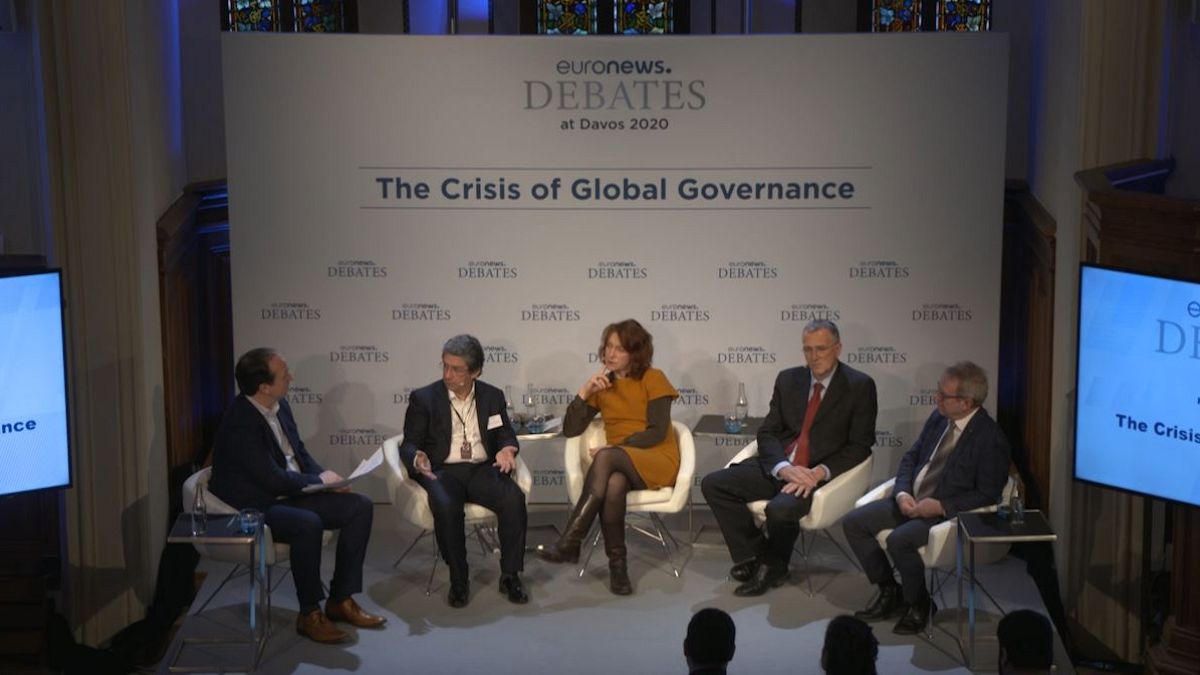Euronews got experts together at the World Economic Forum in Davos to discuss the question.
Empowering citizens in decision-making, building trust and ensuring fair access to new technologies have dominated discussion during a special Euronews-hosted debate in Davos.
The panel were discussing whether there is a crisis of global governance.
Panellist Andre Calantzopoulos, CEO of Philip Morris International, asked: "How can we make people understand we know what we are doing?", adding "because politicians come, promise. President Trump can create confusion and that relaxes people to do nothing. We have it every day in our own business. But how can we make people better understand that there is a direction, there is something that can be done?".
Professor Ulrike Guerot, founder of the European Democracy Lab, highlighted representation as one of the most pressing issues in global governance. She pointed to France as an example.
"Who speaks for France today?" she asked. "Is France the Macronist France or is France the 'gilets jaunes' France or is France 'Marine Le Pen France'? There are at least three Frances. But Macron represents them all," she told the Davos audience.
"Does he represent them all? And these crises of representation leads into a system in which we are barely able to decide and to sanction things, and that's the crisis of global governance."
Technology can also play a role in good governance. With the digital age ushering in an era of rapidly changing and evolving consumer habits, some governments are still using century-old methods of regulation and law-making, leaving those in charge struggling to keep up. Governments also face citizen concerns around trust, privacy and security.
"People are afraid of somebody is misusing your data or doing something bad," said Arvo Ott, director of the Tallinn-based e-Governance Academy. "So like, trust-building takes time and losing trust is very easy. And this is what we think in Estonia, we learned how to build trust."
Professor Mauro Ferrari, president of the European Research Council, highlighted the issue of access to technology.
"Overlay the map of no access to electricity with the map of poverty and a map of extreme poverty, it is essentially the same. Now, if you were to talk to that one billion people, it's a lot of people, like you and me and they are essentially condemned to extreme poverty, poverty, for a number of reasons and circumstances," he said.
"But this correlation with access to a foundational technology I think is important, it's concerning. Again, technology is what you do with it, it's not good or bad, it's what you do with it."
